Since 1997, drivers have enjoyed better fuel economy, lower running costs and unrivalled levels of comfort and refinement thanks to Toyota’s hybrid technology. Today, Toyota’s range of hybrid cars encompasses small hybrids like the Toyota Yaris Hybrid, family size cars like the Toyota Prius, Corolla and Toyota C-HR, even estates like the Corolla Hybrid Touring Sports. But have you ever wondered how hybrid cars work?
Read on to discover exactly what Toyota’s hybrid drive system is, how it works and how it benefits the environment and your wallet.
What is a hybrid?
Simply put, a ‘hybrid’ is a vehicle with two or more power sources. Most hybrid road cars use a normal internal combustion engine paired with an electric motor, but the way these work together means that there are several different kinds of hybrid setup.
Beginning with the original Prius, Toyota pioneered the full hybrid system that uses two separate powerplants – a battery-powered electric motor and petrol-driven combustion engine – which can work together to drive the vehicle or can each be used in isolation. It is the most popular hybrid system in the world, and has sold more than 15 million units since the Prius was launched in Japan in August 1997.
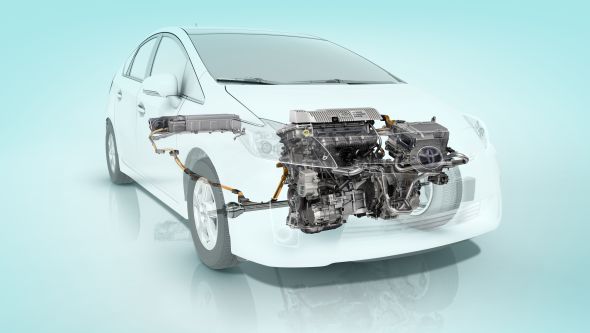
The second kind of hybrid is known as parallel. It uses a normal combustion engine as the main source of power, with an electric motor fitted between the engine and gearbox to provide assistance. This arrangement tends to be more restricted in its function than a full hybrid, and fitting an electric motor into a very small space also limits its power and EV (electric vehicle) range.
Lastly, the third hybrid variation is the series type. In this type of vehicle the electric motor provides all the drive. The normal combustion engine isn’t connected to the transmission, and instead works as a generator to power the electric motor. The main hurdle for a series hybrid is maintaining its efficiency once the battery power has been used up. For this reason, series hybrids are rare.
Toyota hybrid – how does the system work?
Toyota’s hybrid drive system consists of six primary components: petrol engine, electric motor, electric generator, power control unit, and a power split device that uses a special type of gearbox to smoothly distribute power from the engine, motor and generator.
It is a clever, fuel-saving technology that can seamlessly and automatically switch between electric power and conventional engine power. Capable of adapting to different driving conditions, our hybrid system intelligently controls the power coming from both sources and tells the car how to combine them for the greatest efficiency and performance.
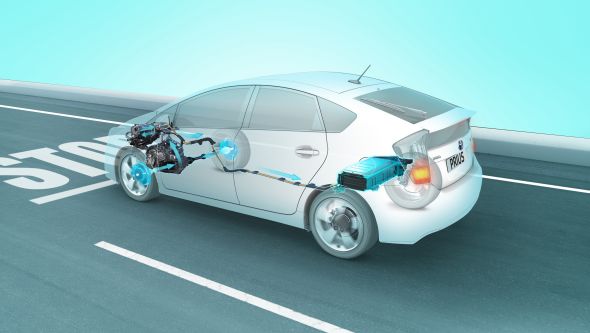
The system delivers true synergy between the two power sources. When the engine is running, it charges the battery via the generator; when driving conditions allow it, such as in slow-moving traffic, the generator can cut out the petrol engine and let the electric motor take over for zero-emissions travelling. The sophisticated engine management system can sense when the car is stopped and will switch off the engine to conserve power and cut emissions, automatically starting up again when needed.
The battery is kept well charged by the system, so a hybrid-powered Toyota won’t need to be plugged into a mains supply to be recharged.
However, Toyota does produce plug-in hybrid electric vehicles for people who can make use of its greater range of more than 30 miles in electric-only EV mode and cars which convert hydrogen into electricity. Read more about the different types of hybrid and electrified vehicle by clicking here.
How are the batteries charged?
Toyota’s hybrid system charges the battery in two ways. Firstly and as already mentioned, the petrol engine drives the generator to charge the battery. The second method is through regenerative braking, a system that puts braking energy to good use.
Every time you put your foot on the brake or lift off the accelerator, the system diverts energy back to the battery where it is, in effect, recycled. Instead of the energy being lost as heat or noise from the brakes, it is captured and then used to power the electric motor later. This is particularly efficient in stop-start traffic where the system recovers and stores a great deal of energy, making the car more efficient overall.
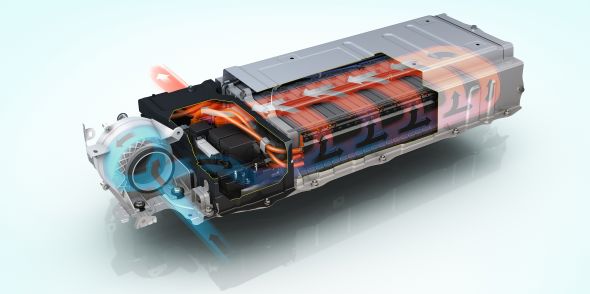
For a PHEV like the Prius Plug-in, the on-board battery can also be charged at home using the mains supply or at dedicated charging points along your journey, allowing the greater EV range of up to 30 miles.
How long do hybrid batteries last?
The batteries in Toyota’s hybrid vehicles are efficient, corrosion-resistant units designed to last, which is why Toyota’s standard battery warranty is five years or 100,000 miles and can be extended up to 15 years with no limit on total mileage – read more about this here.
The batteries are substantial units that have to store sufficient voltage to power the car with no assistance from the petrol engine. It’s true that their production does have a small, additional environmental impact, but this is more than offset by the environmental benefits of driving a hybrid car. In fact, we’ve dispelled that hybrid myth, along with others, in this post.
Toyota is also keen to recycle the batteries from its hybrid cars, which can be remanufactured to make new batteries or repurposed into other forms of stationary energy storage – this can be arranged through your Toyota dealer. We already recover over 90% of hybrid batteries from our vehicles, and are targeting a 100% recovery rate.
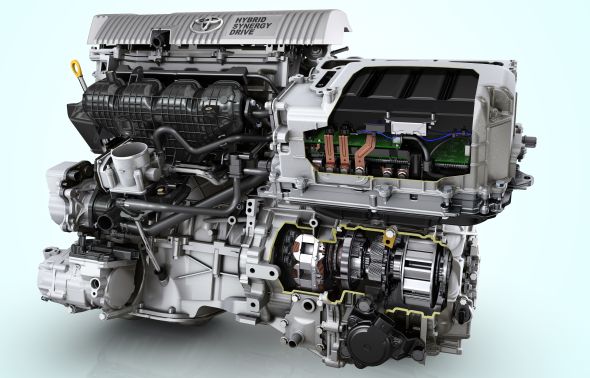
Is the engine different to that of a normal car?
In short, yes. The internal combustion engine used in a Toyota hybrid uses a slightly different engine cycle than the conventional Otto-type four-stroke cycle. Called the Atkinson cycle, this modified four-stroke cycle produces less heat and is therefore more efficient.
By cooling the internal combustion chamber using recirculated exhaust gases, it avoids a problem faced by engines with traditional cycles: injecting more fuel than necessary to reduce combustion temperatures and prevent the catalytic converters from overheating. The traditional remedy works, but uses more fuel in the process. However, Toyota’s solution is more fuel-efficient and is very reliable.
A more in-depth analysis of Toyota’s use of the Atkinson cycle can be read here.
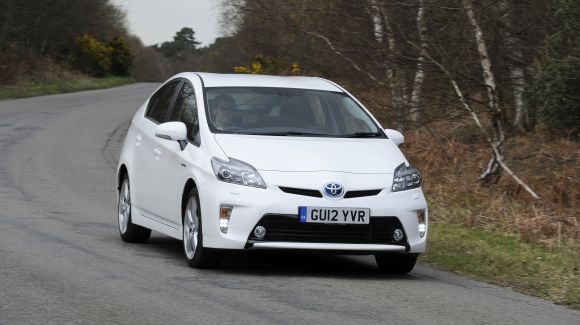
Do I have to drive differently to make the most of hybrid technology?
Not at all. Because Toyota has made the hybrid system fully automatic, it will optimise its operation and minimise fuel use for each driver. You can sit back and enjoy the drive!
You can read more about the experience of driving a Toyota hybrid by reading this article, in which motoring journalist Tim Dickson takes a Corolla Hybrid for a spin.
There are also some general tips, many of which apply to maximising the fuel economy of hybrid and non-hybrid cars alike, at this link.
To find out more about our complete range of hybrid vehicles, click here.
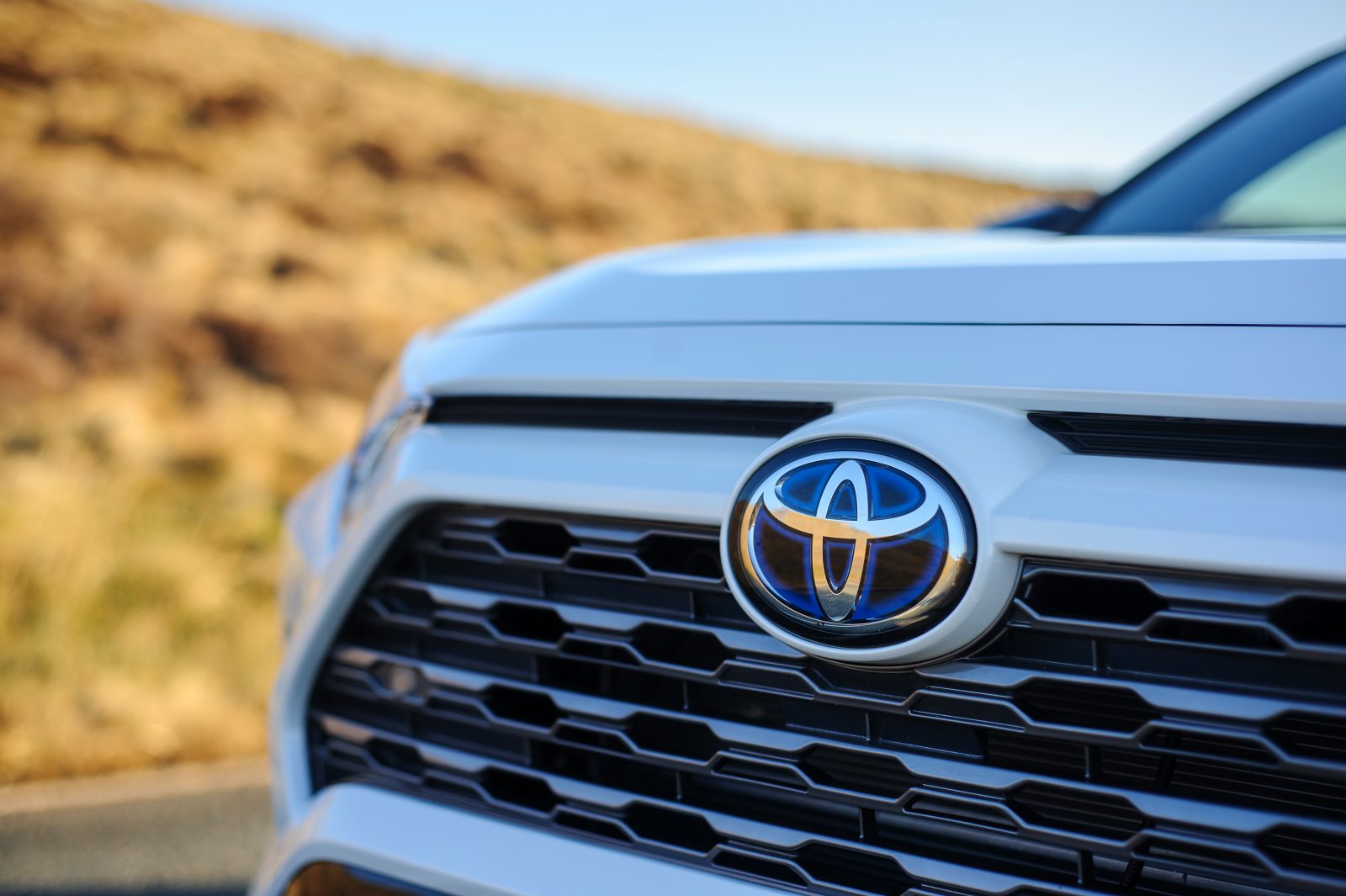
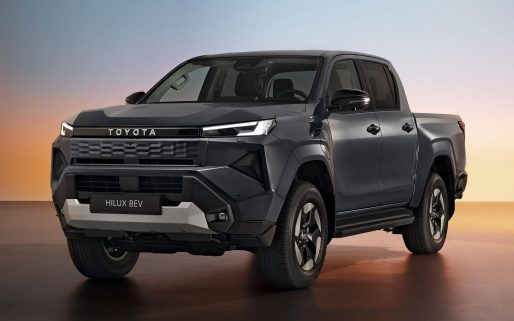
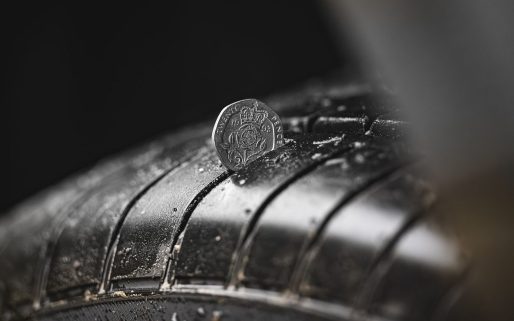

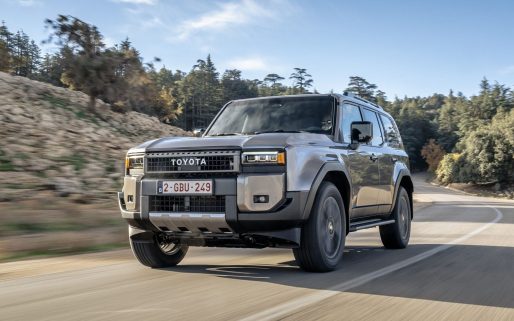
Thinking of buying a Chr Hybrid I do a lot of short trip at low speed some days what impact would be on the electric battery storage if the engine is not cutting in to replenish
Hi Steve,
The petrol engine and the electric motor/battery work together intuitively. When the battery runs low, the petrol engine turns on. It will repeat this throughout the journey, and run in electric mode whenever it can. We recommend a test drive so you can see how the system works. Do you know where your nearest Toyota centre is?
Thanks
I bought. 2021 Prius XLE AWD-e yesterday. I drove 150 miles to buy it Cash. After begetting home we realized the battery does not charge.
Toyota wants us to wait 2 weeks for an appointment to look at it. We were supposed to leave on our vacation tomorrow.
Would I recommend a Toyota Prius. There service is the Worst.
Hi Phil,
This is the blog for Toyota UK. We’re sorry to hear about your experience, but would recommend contacting Toyota USA for assistance with this.
Thanks
I bought a brand new Yaris Hybrid in April. I drive it locally two or three times a week. In the nine weeks I’ve have it, I have done 558 miles. I got the car with a full tank of petrol which lasted until 1st June when refilled it with 22 gallons. The tank is already half used. I bought a hybrid because I thought it was going to be more fuel efficient. I keep getting a message on the display telling me to use the hybrid system, but I thought the car was supposed to do this automatically. This is not being particularly fuel efficient. The furthers I drive is an hour round trip. It’s just been serviced. What am I doing wrong? I
I love
Hi Veronica,
Thanks for getting in touch and thanks for choosing Toyota. What MPG reading is the vehicle giving you? You’re right – the hybrid system does function automatically. We’re not sure why you are getting this message. In fact, it is not something we have heard of before. In this instance, we recommend contacting your nearest centre so they can inspect the vehicle for you. We expect that is an inconvenience, and we apologise in advance for that.
Thanks
I am looking to buy a car for 40 mile motorway commutes with good mpg. Would a 2015 Yaris Hybrid (as below) be appropriate or would you recommend another model/vehicle for these longer extra-urban journeys?
In the link below does the Yaris Hybrid achieve 85.6mpg extraurban? Where can I find stats for each model / year? thank you!
https://www.autotrader.co.uk/car-details/202106123778258?advertising-location=at_cars&transmission=Automatic&year-from=2012&maximum-mileage=45000&price-to=10000&postcode=W93TX&body-type=Hatchback%2CSaloon%2CCoupe&page=5&radius=50&fuel-type=Petrol%20Hybrid&include-delivery-option=on
Hi Aatif,
Thank you for your comment.
It sounds like this figure has come from the old NEDC fuel economy test, which is what the 2015 Yaris you are referring to was measured with. For clarification, the figures from that test are:
Urban – 85.6-91.1.
Ex-Urban – 78.5-85.6.
Combined – 78.5-85.6.
The NEDC fuel economy test was was notoriously bad at measuring real-world driving figures, and indeed many drivers reported achieving far fewer mpg than quoted here.
We are unable to confirm whether or not you will be able to achieve these figures in this Yaris, so we would recommend test driving the vehicle along a similar route or a motorway to see if it will be suitable for your needs.
Thanks.
Hii,
My name is Jeffin Augustine who purchased a 2017 RAV4 2 weeks before from JEMCA TOYOTA CROYDON. The registration no of the car is LD17 CBX. After 2 weeks of driving the car i came to realise i am not getting the mpg as the manufacturer (Toyota) claims. I went through lots of reviews and videos where most of them says the actual real world mpg is 40-50 which is good. But the mpg i am getting is as low as 25 and a maximum of 29 that too without switching on the Air conditioning and driving under 50. I am not a rash driver as i drive in a limited speed. Even on the highways i am only getting 29 mpg which is unacceptable. I bought this hybrid car for 20000 grants believing the good mpg which i heard from the dealer and reviews. I am thinking of returning back the car as i have a months time like any other customer to return back the car as its not living up to my expectation. I dont know if there is anything with the engine or the hybrid battery. I drive only on eco mode and ev mode during my driving. So please give me some information about what is wrong with this car.
Regards
Jeffin Augustine
Hi Jeffin,
Thanks for your comment. We’re sorry to hear that you are unhappy with your RAV4.
Driving a hybrid can be very different to driving a petrol vehicle, and sometimes adjustments to driving style can assist in increasing mpg.
You may find this blog post useful, detailing how to get the best fuel economy from your hybrid: https://mag.toyota.co.uk/hybrid-driving-tips-for-best-fuel-economy/.
However, if you believe that there is something wrong with your vehicle, we would recommend taking it to your nearest Toyota Centre. They will be able to assess your car and make any necessary recommendations.
Thanks.
My 2021 rav hybrid awd did 28mpg towing my 1.5 ton caravan and regularly does solo mpg in excess of 60…gentle driving where possible but goes like hell when asked,
G.
Hi! Jeffin,
I have a similar problem- recently occurring. Since I purchased my vehicle almost from new in late 2020 I have averaged 45 mpg, even during the previous winter it rarely dropped below 40 mpg.
However, during the past two weeks along the same commute to work as always I am doing about 32 mpg on average. I’m not sure whether there is a fault with the fuel gauge sensor or whether it’s because it’s locked in permanent 4WD because of low temperatures. I have even tried driving without any heating to try and boost mpg without success. It’s a mystery as I have not changed my driving habits which usually score me very favourably as I drive in eco mode.
Any suggestions Toyota?
Hi Joe,
Thanks for your comment.
It is difficult to diagnose this as there are so many factors that affect fuel economy.
However, if there is a fault, your Toyota Centre would be best placed to diagnose this.
Thanks.
Hi
Just bought a Toyota yaris hybrid the dealer has told us to always leave the air conditioning runninh
Is this correct ?
Hi Lorraine,
Please can you confirm the reason your dealer has told you to do this.
Thanks.
How does the 12V battery charging work? Mine seems to give it a 14V boost at the start end end of the journey but regularly leaves the battery at <12.3V and goes below 12V when I’m listening to music in a parked car. I’ve had three flat batteries so far.
Hi Gareth,
Thanks for your comment.
Please contact your nearest Toyota centre so they can inspect your battery and advise further.
Thanks.
Hi, Where do you advise storing EV cables in the RAV4 PHEV?
Hello John, thanks for your comment.
There is a section of the boot liner that folds back to offer a storage section for the charging cables.
Your local Toyota Centre will be able to point this out to you.
Thanks.
I purchased aYaris Hybrid reg No WG21AY inMay 2021 .the 12 volt battery kept going flat I had to get the AA to jump start it for me. I took the the car to Snows of Exeter they checked the the battery and said it was defunct and I needed a new one, however I did not expect to pay £100 why is the battery no covered for at leased one year and replaced free . John Simmons.
Hi John,
Thanks for your comment, we apologise for the inconvenience this has caused.
Our Customer Relations Team would be best placed to investigate this for you.
You can contact them here – https://www.toyota.co.uk/help-centre/email-us
Please let us know if we can assist you further.
Thanks.
My 2020 Yaris simply wouldn’t start, luckily I was on my drive, I contacted my local dealer who told me to contact Toyota asssist who would help with the problem. The AA man came and said it was a low battery, he jump started it and I drove to the dealer to be checked. They fully charged the battery and said it was fine, the problem was caused by my not using the car enough, I have done 4,300 miles in a year. I have had 3 other Hybrids with no problem, I find it strange that I was told to drive my car more, the car is supposed to help the environment not encourage me to drive more. Are his comments correct, has anyone else been told this.
Hi Alan, thanks for your comment.
The advice received is correct. As with any vehicle, if you are making infrequent and short journeys, this may not allow the 12V starter battery enough time to recharge. This is even more apparent in the winter months when we draw more energy from the powertrain in trying to heat the cabin. This is something that can occur with all vehicles and not just Hybrids.
There are a few things that can be done to avoid the depletion of the battery. Firstly, we would recommend either putting the car in ‘Ready’ mode for about 60 minutes once a week to maintain the battery or to take more frequent, longer journeys. You could also look into a solar powered intelligent charger to maintain the battery if the car is not being driven for longer periods.
Thanks.
Yes exactly the same problem and same advice. I got the hybrid to be environmentally conscious and now I have to either leave it running on the driveway or go for an unnecessary drive to keep the 12v battery charged. Really inconvenient and there needs to be a better solution.
Buy a small Centech battery maintainer and if not using the vehicle it will keep the 12V battery charged without having to burn gas. A very small amt of electricity is used by this charger.